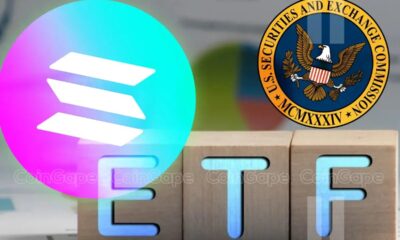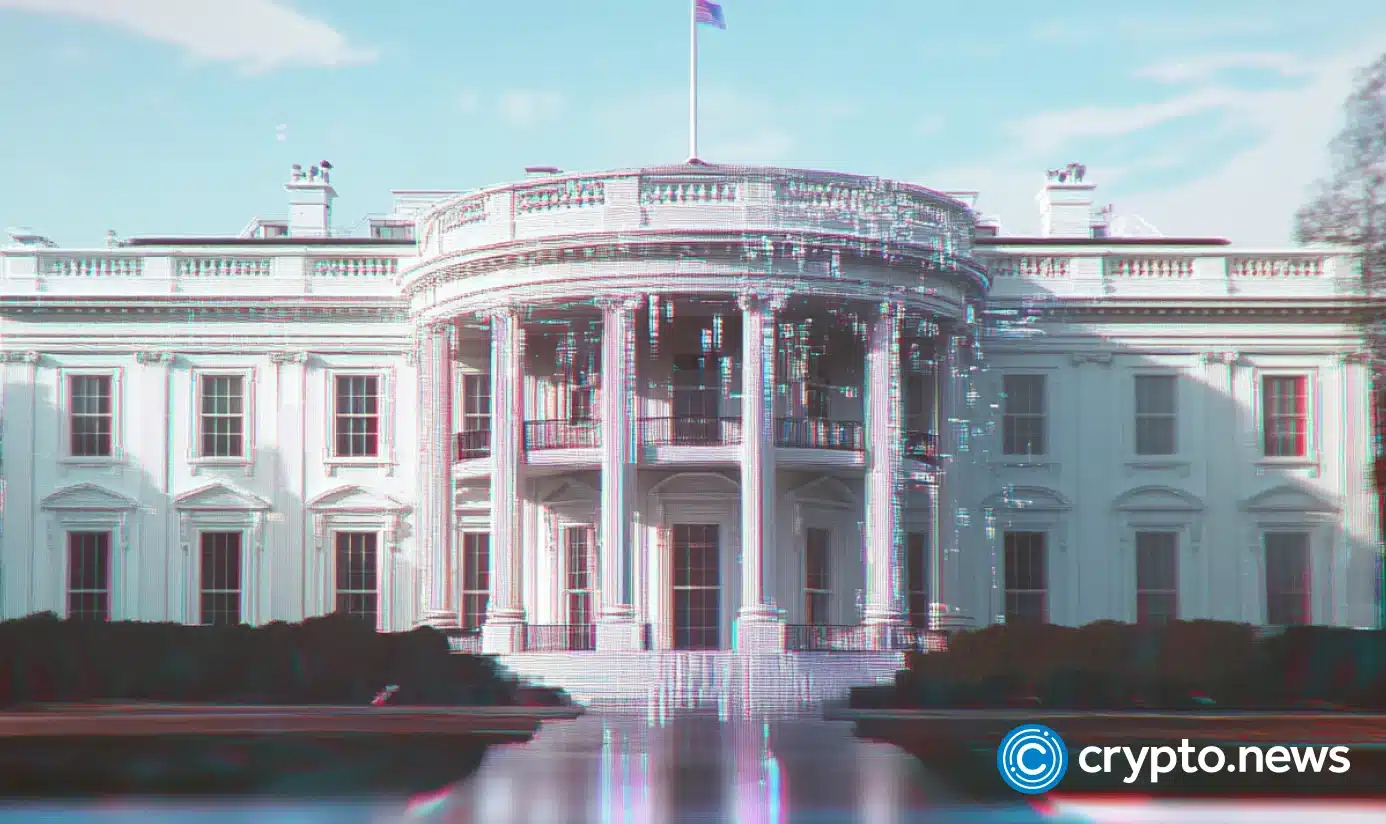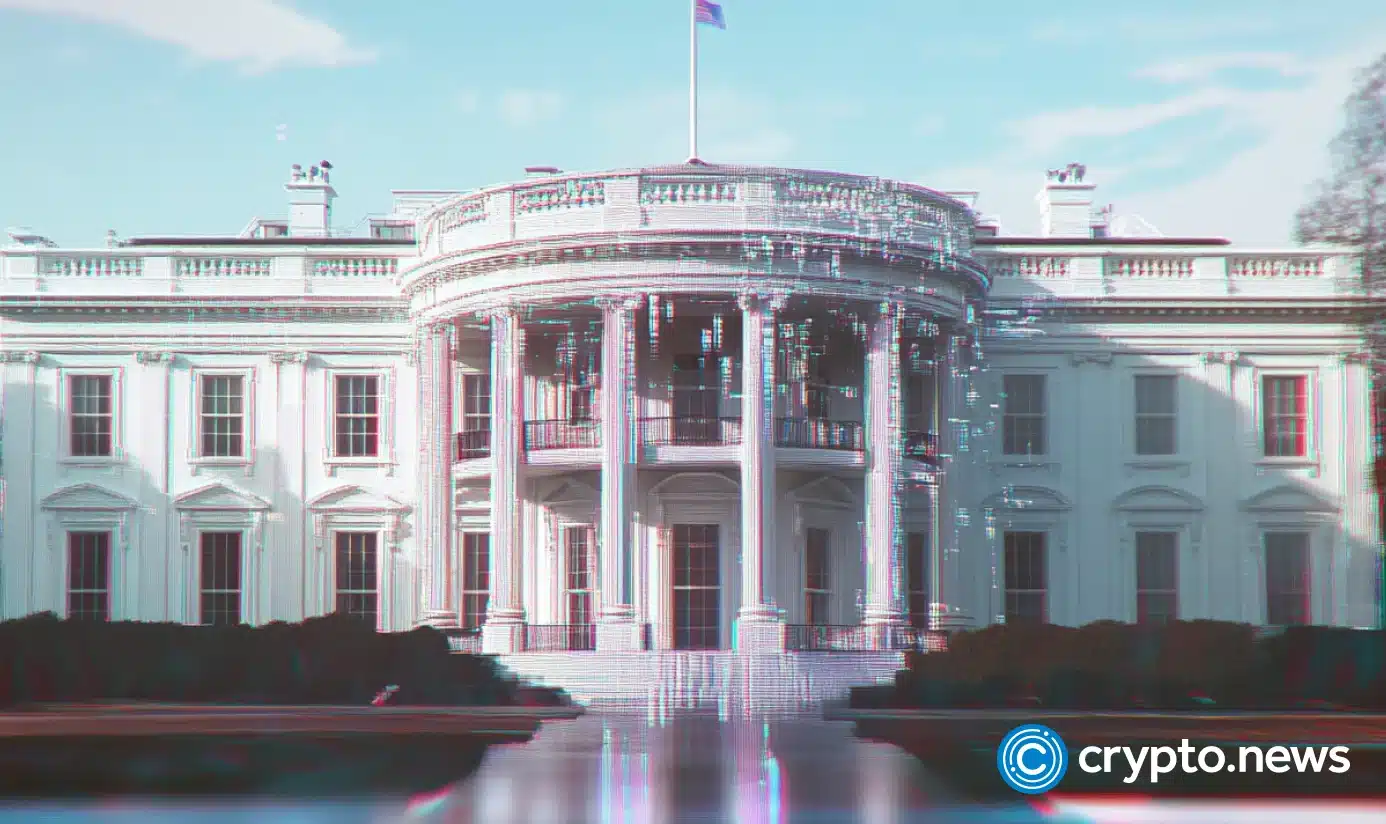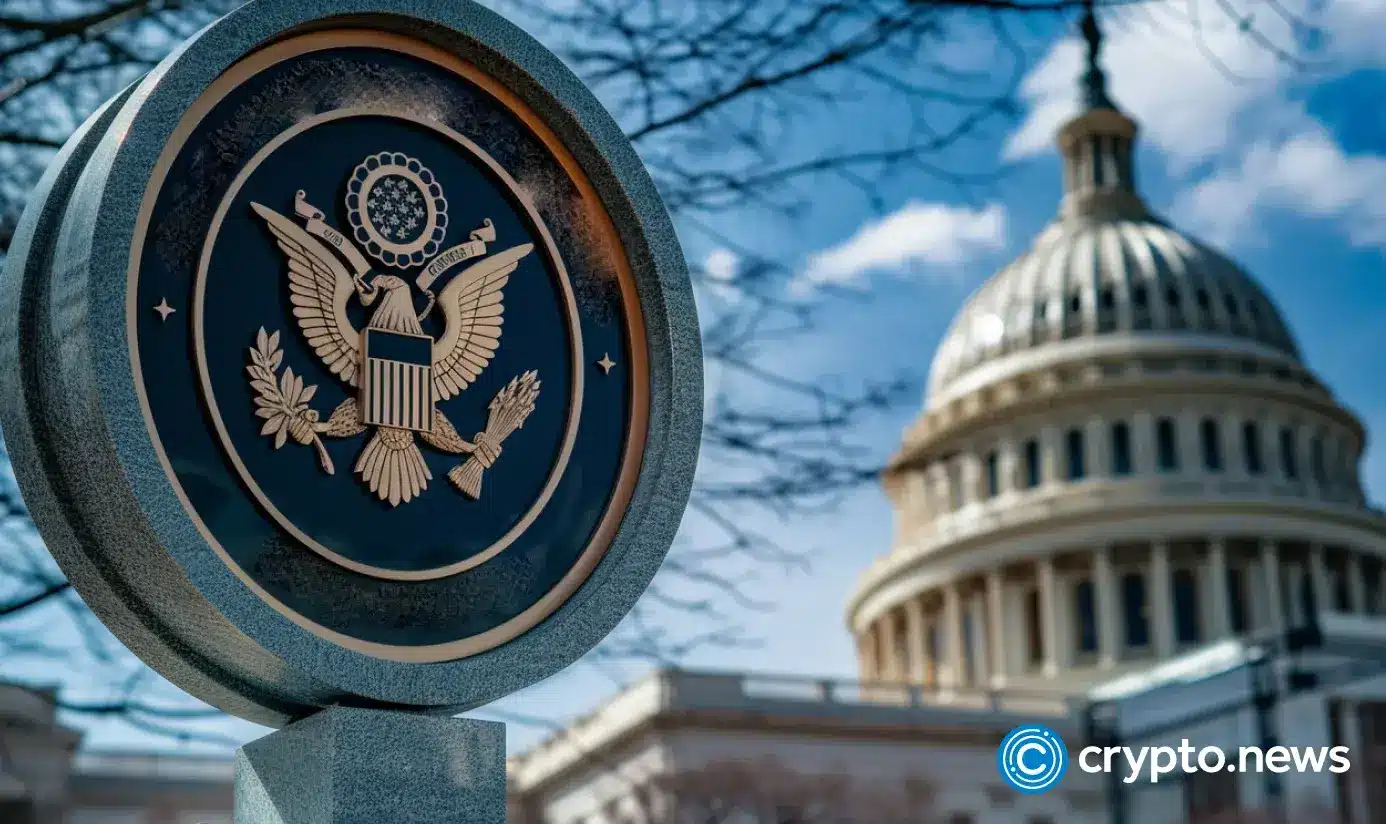Feature
Telegram messaging app transforms into blockchain innovator
Published
4 months agoon
By
admin

Telegram launched as a simple messaging app in 2013. Today, it’s a major player in the cryptocurrency space, integrating the TON blockchain.
When brothers Nikolai and Pavel Durov founded Telegram, the startup quickly gained popularity for its emphasis on privacy and speed.
In the subsequent years, Telegram underwent a transformation: changing from a communication tool to a key platform for crypto users and applications.
In this article, we will retrace Telegram’s journey, from its initial foray into blockchain technology with the TON Blockchain to its legal battles with the U.S. Securities and Exchange Commission and its current influential role in the crypto community.
Telegram origins and shift to crypto
As stated earlier, Telegram started as a messaging app — touted for its strong security features and user-friendly interface. It utilized encrypted chats and large group chats.
Telegram’s introduction of bots in 2015 marked a significant milestone. This allowed the app’s users to automate tasks, manage groups, and even facilitate complex interactions.
As the platform grew, Telegram introduced voice calls in 2017 and video calls in 2020, further enhancing its communication capabilities.
Its evolution continued with the launch of channels, which provided a new way for users to broadcast messages to large audiences. This tool was further enhanced with stories for channels, a feature allowing users to share fleeting content with unique dual-camera functionality and detailed privacy settings.
It also introduced a transparent and fair giveaway system within channels, enabling users to win real-world prizes.
However, the Durov brothers had a grander vision for Telegram beyond messaging. They sought to create a decentralized platform that could change the way people handled digital transactions and communications.
This vision led to the creation of the Telegram Open Network blockchain. The goal was to build a high-performance blockchain capable of processing millions of transactions per second while integrating seamlessly with Telegram’s messaging platform.
The project promised to introduce new features such as decentralized applications, smart contracts, and a native cryptocurrency, Gram.
Developing the TON blockchain
The TON Blockchain began in earnest when Pavel Durov released a whitepaper in 2018 outlining its technological advancements and potential.
Originally envisioned to integrate cryptocurrency and blockchain features into the Telegram ecosystem, TON’s creators designed it with scalability in mind. It was meant to handle millions of transactions per second, a feat it aimed to achieve through a unique multi-blockchain architecture and sharding mechanism.
The mechanism splits the blockchain into a master chain, which manages the overall network, and multiple work chains, each capable of operating independently.
To actualize this dream, Telegram sought to raise funds through an initial coin offering. Before that, the company raised about $1.7 billion from 175 investors in a private sale of its native Gram token.
However, the success was short-lived. Soon after the presale, the U.S. Securities and Exchange Commission cast its regulatory eyes on the platform.
Legal battle with the SEC
In October 2019, the SEC filed a complaint against Telegram, alleging that the company had conducted an unregistered securities offering by selling Gram tokens. The commission argued that those tokens were securities and should have been registered under U.S. securities laws.
The legal battle culminated in a landmark decision in March 2020 when a U.S. federal court ruled in favor of the SEC, halting the distribution of Gram tokens.
As a result, Telegram postponed and eventually abandoned the project in May 2020. It also agreed to return the money raised in the pre-ICO event to investors and pay an $18.5 million civil penalty.
Telegram felt the impact of this decision, which also sent shockwaves through the broader crypto industry, highlighting the regulatory challenges blockchain projects face.
Once Telegram stepped back, a group of independent developers picked up the slack and continued to build TON, now renamed The Open Network. This ensured the project’s survival.
Its development is now supported and guided by a non-profit organization, the TON Foundation, based in Zug, Switzerland. Steve Yun serves as the president of the TON Foundation, while Andrew Rogozov, former CEO of Russian social media site VK, is a founding member.
Throughout 2021 and 2022, the TON community focused on improving the network’s architecture, implementing dynamic sharding, and refining its proof-of-stake consensus mechanism.
Telegram’s continued support and integration
While no longer the architect of the development of TON, Telegram has continued to support the platform. For instance, in September 2023, the messaging app, with more than 800 million users at the time, integrated the TON Space self-custodial wallet.
This integration was followed by an introduction to an ad revenue-sharing system this past March, where payments are made exclusively in Toncoin (TON), the successor of Gram, thereby fostering further engagement with the TON ecosystem.
In September 2023, Telegram officially endorsed TON, declaring the blockchain and its associated token as the app’s “official web3 infrastructure.” This move has sparked investor interest and led to substantial gains for the TON token.
As a result, the total value locked on TON surpassed $300 million on May 27, 2024, marking a significant milestone fueled by a community rewards program from the TON Foundation.
Telegram’s current role in crypto
Seemingly putting its disappointment at not being able to build the TON network by itself, Telegram has continued to play a pivotal role in the crypto space. The messaging app has become a central hub for the crypto community, providing a platform for discussion, collaboration, and information sharing.
Telegram groups and channels are widely used for announcements, trading signals, and community building within the crypto ecosystem.
Additionally, the platform’s influence in the crypto space has been further solidified by its recent introduction of new features that cater to crypto users, such as a digital marketplace within the app and integrations with popular wallets like Trust Wallet.
Telegram’s collaboration with Trust Wallet will enable the crypto wallet to leverage the messaging app’s vast user base, focusing on gaming finance and dapps. It will also reportedly allow Trust Wallet’s 100 million users to send and receive TON tokens.
Furthermore, TON announced it would soon support Tether (USDT) tokens on its blockchain, allowing Telegram users to send the stablecoin within the app.
News of that particular development boosted TON’s value, pushing it up to $7.63 on April 11 from approximately $2.21 a year ago, according to CoinGecko data.
At the time of this writing, a TON token was going for $5.46, giving the cryptocurrency an overall value of $13.7 billion and making it the tenth-biggest digital asset by market cap, just behind Dogecoin (DOGE).
Rise of mini-apps and the tap-to-play ecosystem
On July 31, Telegram announced it was rolling out a new in-app browser, expanding its blockchain capabilities and user experience. The announcement followed the introduction of a mini app store earlier in the month by CEO Pavel Durov.
The latest Telegram update added a Mini App Store in search, where users can find a list of popular mini apps. Featured mini apps display their number of monthly active users and developers can now add screenshots and video demos to their bot’s profile. pic.twitter.com/Jxr0CdUeMM
— Telegram Messenger (@telegram) August 3, 2024
This new browser will enable Telegram’s vast user base to access TON sites, a platform for decentralized websites. The Telegram co-founder highlighted that the browser offers features akin to traditional web browsers and integrates web browsing with messaging.
Additionally, you can access the Telegram mini app store through the app’s search feature. According to the announcement, 500 million of Telegram’s 950 million users interact with mini-apps monthly, and they can now find all their mini-apps in one consolidated location.
The ecosystem also introduces “Stars,” a new in-app payment unit launched on June 7. Users can send Stars to friends and use them for transactions within mini-apps, which can later be exchanged for Toncoin.
Telegram’s mini-apps have been quite successful. Popular applications like Notcoin (NOT) and Hamster Kombat attract millions of users worldwide. In Notcoin, users earn tokens by completing social challenges. The game has amassed more than 35 million users in five months and had a $1.15 billion market cap at the time of writing.
Hamster Kombat, a crypto exchange management simulation game, is no slouch either. It has become one of the fastest-growing web3 applications, reportedly boasting over 300 million users since its launch in March 2024.
The project plans to launch a significant airdrop for its native token, HMSTR, on the TON network, an exercise it described as the “largest airdrop in the history of crypto.”
As reported by crypto.news, Hamster Kombat plans to distribute at least 60% of the HMSTR supply to players of the game on Telegram.
Another noteworthy mini-app, Catizen, launched alongside Hamster Kombat, has attracted over 27 million active users. This success led to investment in the app’s publisher, Pluto Studio, from HashKey Capital, a Hong Kong-based crypto venture firm.
However, despite the excitement, some delays have caused frustration among users. The highly anticipated token airdrops for HMSTR and Catizen’s CATI tokens were expected to launch on the TON blockchain in July but have both been postponed.
Catizen cited planning challenges, including securing exchanges, ensuring liquidity, and compliance issues, as reasons for the delay. Similarly, Hamster Kombat explained that the complexity of the technical task has pushed back its token release.
Looking ahead
Telegram’s foray into the crypto and digital assets market is a testament to its vision of becoming a comprehensive digital ecosystem. With its approach to monetization and the success of its mini-apps, the messaging platform is positioning itself to continue its growth in the crypto space.
It also seems like Telegram is planning an initial public offering. In his first interview since 2017, Pavel Durov revealed plans for the messaging app’s financial future, including a potential IPO.
Additionally, Durov told the Financial Times on March 11 that Telegram aims to become profitable by 2025, if not sooner.
Since 2021, Telegram has raised $2 billion through bond issues, with bondholders reportedly set to receive a 10-20% discount on the IPO if it occurs before March 2026.
Telegram’s journey from a messaging app to a significant player in the crypto space is a testament to its ability to adapt and innovate. Despite facing regulatory challenges and setbacks, it has remained a vital platform for the crypto community.
Source link
You may like


5 Tokens Ready For A 20X After Solana ETF Approval


Solana beats Ethereum in a key metric 3 months in a row


SCENE’s 2024 Person of the Year: Iggy Azalea


BTC Risks Falling To $20K If This Happens


Most Layer 2 solutions are still struggling with scalability


Here’s why Stellar Price Could Go Parabolic Soon
Bitcoin
Microsoft says ‘no’ to Bitcoin, corporates say ‘bring it on’
Published
2 days agoon
December 22, 2024By
admin

Microsoft shareholders nixed a Bitcoin treasury idea, but other big-name companies disagree with this strategy. Here’s why.
Bitcoin (BTC) is often likened to “digital gold,” with its fixed supply of 21 million coins making it a potential hedge against currency devaluation and inflation.
And nowadays, Bitcoin’s unique characteristics make it an attractive addition to corporate treasuries. It can balance exposure to traditional assets like cash, stocks, and bonds.
Bitcoin is also one of the most liquid assets globally, and its historical performance has shown significant long-term value appreciation — it reached an all-time high of over $108,000 on Dec. 17.
But there’s no shortage of risks.
A board might avoid adopting a Bitcoin treasury due to the coin’s extreme price volatility, which can lead to substantial losses during downturns. Also, regulatory uncertainties pose potential threats as governments refine crypto policies. Additionally, liquidity challenges during market slumps can amplify price drops when offloading assets.
So it’s no wonder that, on Dec. 10, Microsoft’s board channeled the long-standing crypto skepticism of its co-founder, Bill Gates, and recommended ditching the proposa for a Bitcoin trasury. Gates himself has famously dismissed crypto as “100% based on greater fool theory” — ouch.
Bitcoin evangelist and MicroStrategy Chairman Michael Saylor was busy trying to woo Microsoft when he touted Bitcoin’s own meteoric returns and bragged about MicroStrategy’s stock soaring after their BTC splurge. His pitch? Bitcoin could boost Microsoft’s market cap while acting as a financial guardian angel.
Microsoft’s response? No, thanks.
Meanwhile, at least 10 other companies are embracing the MicroStrategy playbook.
Genius Group
Genius Group, an AI-powered education group, announced in November that it had completed the purchase of 110 Bitcoin for $10 million, at an average price of $90,932 per Bitcoin. The purchase made good on a promise to employ what it called a “Bitcoin-first” strategy where it planed to commit 90% or more of its current and future reserves to be held in Bitcoin, with an initial target of $120 million in Bitcoin.
Earlier this month, the company bolstered its Bitcoin treasury by acquiring 194 Bitcoin worth $18 million at an average price of $92,728 per Bitcoin.
Genius Group CEO Roger Hamilton credited Saylor’s Bitcoin treasury plan for the inspiration, adding that “more companies will see the benefits of establishing a Bitcoin treasury, and will be equipped with the clear steps to follow.”
Worksport
Worksport, a U.S.-based provider of pickup truck solutions, is adding cyptocurency to its corporate treasury strategy.
The Nasdaq-listed company announced on Dec. 5 that it would be adding Bitcoin (BTC) and XRP (XRP) to its treasury assets. This follows a resolution by the company’s board of directors, which approved an initial purchase of $5 million worth of BTC and XRP.
Worksport is committing 10% of its excess operational cash to this corporate pivot, it said in the announcement.
“Our upcoming adoption of Bitcoin (BTC) and XRP (Ripple) reflects our commitment to staying ahead of market trends while prioritizing operational efficiency and shareholder value. As we expand our product offerings and global reach, cryptocurrency has the potential to be a strong strategic complement,” Steven Rossi, chief executive officer of Worksport, said.
Amazon
Amazon shareholders, led by the National Center for Public Policy Research, are urging the Seattle-based company’s board to assess the potential benefits of adding Bitcoin to the company’s financial strategy.
The proposal, submitted on Dec. 6, aims to explore whether Bitcoin could protect and enhance shareholder value, especially amid persistent inflation and declining yields from traditional assets.
The National Center emphasizes Bitcoin’s robust performance—131% growth in the past year and 1,246% over five years—as evidence of its potential as an inflation hedge and a growth asset. The initiative also highlights concerns about the diminishing purchasing power of Amazon’s $88 billion cash reserves due to average inflation of 4.95% over the past four years.
This move represents a broader trend of shareholder proposals influencing corporate policies, leveraging shareholder rights to advocate for financial strategies that address economic risks and enhance long-term value.
MicroStrategy
Perhaps the most vocal of all Bitcoin fans is MicroStrategy’s Saylor who, as of this past week, increased the company’s total holdings to 439,000.
As a result, Saylor has officially strengthening MicroStrategy’s position as the top corporate BTC holder, considering it a long-term store of value.
Saylor, during an appearance on the Dec. 18 episode of the Open Interest show on Bloomberg Television, even voiced his willingness to advise President-elect Donald Trump on crafting a digital assets policy for the U.S.
But Saylor continues to draw scrutiny: Analyst Jacob King has labeled MicroStrategy’s Bitcoin-focused business model a “giant scam,” claiming it is unsustainable and destined for collapse.
MicroStrategy’s business model is a giant scam and relies on a reflexive loop: it issues debt or equity to buy BTC, which drives BTC’s price higher. This increases MSTR’s market cap, boosts its index weight, and attracts more sheep investors. With a higher valuation, it issues… pic.twitter.com/Owyi7mCHaO
— Jacob King (@JacobKinge) December 17, 2024
Marathon Digital Holdings
As one of the largest Bitcoin mining companies, Marathon owns 44,394 BTC. Its business model revolves entirely around mining and holding Bitcoin as part of its assets.
Back in July, the company confirmed it will adopt “a full HODL approach” towards its Bitcoin treasury policy, retaining all that it mines within its operations, in addition to its open market purchases.
“Adopting a full HODL strategy reflects our confidence in the long-term value of bitcoin,” CEO Fred Thiel stated. “We believe bitcoin is the world’s best treasury reserve asset and support the idea of sovereign wealth funds holding it. We encourage governments and corporations to all hold bitcoin as a reserve asset.”
Tesla
Tesla initially bought $1.5 billion worth of Bitcoin in 2021 and currently holds 9,720 BTC. While the Elon Musk-led company remains a significant corporate holder.
BitcoinTreasuries data shows that Tesla is the fourth-largest holder of Bitcoin among U.S. public companies with crypto treasuries (MicroStrategy, MARA Holdings and Riot Platforms are believed to hold more).
In October, the electric vehicle company reportedly moved $765 million worth of Bitcoin to unidentified wallets.
Coinbase
The cryptocurrency exchange holds 9,480 BTC as part of its reserves, leveraging its position as a major player in the digital asset ecosystem.
The Brian Armstrong-led firm holds large amounts of Bitcoin as an exchange and converter. It’s also a trusted institution for custody services, and counts the Bitcoin ETF coterie of BlackRock, Grayscale, 21Shares, Invesco, Valkyrie, Wisdom Tree and Franklin Templeton among its clients.
Therefore, Coinbase has a Bitcoin treasury for itself and oversees others.
Hut 8 Mining Corp
On Thursday, crypto.news reported that Hut 8, a Bitcoin mining company, added 990 Bitcoin to its reserves.
The company spent roughly $100 million to increase its total holdings to 10,096 BTC. The reserve, now valued at over $1 billion, places Hut 8 among the largest corporate Bitcoin holders globally.
The company, under the guidance of CEO Asher Genoot, purchased the coins at an average price of $101,710, significantly higher than its cumulative acquisition cost of $24,484 per Bitcoin.
Block Inc.
The startup (formerly Square) holds 8,027 BTC as part of its strategy to integrate Bitcoin into mainstream finance.
The Jack Dorsey-founded company is so bullish on Bitcoin that, last month, it confirmed a company-wide pivot towards the cryptocurrency mining sector.
Block decided to dial down resources towards music streaming service TIDAL, and sunset TBD, a venture focusing on decentralizing the internet, to focus on expanding its presence in the Bitcoin mining sector.
Block acquired TIDAL in a 2021 acquisition for roughly $300 million. The platform has continued to struggle, with reports indicating workforce reductions and a $132.3 million impairment charge.
OneMedNet
OneMedNet Corp., as of Nov. 12, owns some 34 Bitcoins.
Off The Chain Capital, an investor in OneMedNet, was also inspired by Saylor, betting that Bitcoin isn’t just a hedge but a springboard for its healthcare data innovation.
Aaron Green, the company’s CEO, stated, “By continuing to invest a portion of our assets into Bitcoin, we aim to not only safeguard our financial stability but also fuel the ongoing development and innovation within our iRWD platform.”
Source link
Donald Trump
Trump taps crypto bros to be in charge: What’s at stake?
Published
4 weeks agoon
November 24, 2024By
admin

As President-elect Donald Trump prepares for a second term, his incoming administration has already nominated several crypto-friendly faces for key leadership roles.
Voters who bought into the Republican rhetoric that the Biden administration led a so-called “war on crypto” are likely excited. After all, Trump is the first elected official to hawk his own digital currency.
While cryptocurrency awareness is relatively high in the U.S., most Americans remain disinterested. According to a Pew Research study, roughly six-in-10 Americans (63%) say “they have little to no confidence that current ways to invest in, trade or use cryptocurrencies are reliable and safe.”
But with the U.S. Securities and Exchange Commission poised for an overhaul, and a slate of cryptocurrency advocates (listed below) jockeying for cabinet or council positions, the era of crypto cronyism within the U.S. executive branch is upon us — whether Americans like it or not.
What could go wrong?
Scott Bessent
Trump’s nominee for Treasury Secretary, Scott Bessent, is a well-known cryptocurrency advocate. The former Soros Fund Management CIO made headlines when he expressed excitement about crypto’s potential to revolutionize finance, aligning it with Republican ideals of freedom and innovation.
The 62-year-old hedge fund manager has been vocal about distancing crypto’s future from the likes of Sam Bankman-Fried, framing Bitcoin (BTC) as a unifying economic opportunity for younger generations disillusioned by traditional markets.
Should Bessent be at the helm of the Treasury, he would likely shake up digital assets and reduce the risk of severe tariffs.
Howard Lutnick
Cantor Fitzgerald CEO Howard Lutnick, Trump’s pick for Commerce Secretary, is reportedly in talks with Tether, the largest stablecoin operator, to spearhead a $2 billion lending initiative.
Known for steering Cantor Fitzgerald into crypto trading, Lutnick’s embrace of digital assets demonstrates his knack for blending traditional finance with emerging technologies. If the Tether partnership materializes, it could expand access to capital while deepening the role of stablecoins in global financial systems under Lutnick’s leadership.
Thank you, President Trump for your trust in me to help Make America Great Again. As the next Secretary of Commerce, I will join the best administration the US has ever seen and unleash our full economic potential. pic.twitter.com/CTr0sdH6nt
— Howard Lutnick (@howardlutnick) November 19, 2024
Elon Musk and Vivek Ramaswamy
Trump’s audacious proposal to create the “Department of Government Efficiency” (DOGE) has drawn attention not just for its acronym, but for the crypto bulls that wish to be at the helm.
Tesla CEO Elon Musk, a longtime proponent of Dogecoin (DOGE), and biotech entrepreneur Vivek Ramaswamy are tasked with slashing $2 trillion annually from federal programs like Medicare and Social Security. Ramaswamy has proposed deleting entire agencies.
There are well over 400 Federal agencies.
I was once in a meeting with a new agency that was being formed, but it didn’t have a name yet.
The reason it didn’t have a name was that all the good acronyms were taken! https://t.co/0Xvei7nWln
— Elon Musk (@elonmusk) November 21, 2024
While Congress must greenlight the department’s formation, it’s worth noting that it’s a real possibility considering the GOP’s majority in the U.S. Senate and the House of Representatives.
Brad Garlinghouse
Ripple (XRP) CEO Brad Garlinghouse praised Trump for nominating Bessent as “Treasury Sec.”
I don’t want to get too far ahead of myself but…
Scott Bessent is the perfect pick by @realdonaldtrump!
He will be the most pro-innovation, pro-crypto Treasury Sec we’ve ever seen
— Brad Garlinghouse (@bgarlinghouse) November 23, 2024
But Garlinghouse, himself, is a prominent player in Trump’s crypto strategy. He reportedly held discussions with Trump’s inner circle, suggesting he could — or has had — some say in hiring decisions.
In addition to advocating for the removal of SEC Chair Gary Gensler, Garlinghouse envisions a digital asset market structure bill moving forward in the Senate.
Brian Armstrong
Coinbase CEO Brian Armstrong met with Trump, according to Reuters. While it’s unclear what they discussed, reports suggest Armstrong is keen on joining Trump’s planned Bitcoin and crypto presidential advisory council.
Either way, Armstrong is voicing his thoughts on who should be in charge. Earlier this month, he tossed out the idea of replacing Gensler with SEC commissioner Hester Peirce, aka “Crypto Mom” in the crypto world, who’s been throwing some serious shade at Gensler’s crackdown.
And if Peirce isn’t available, there’s always Republican SEC commissioner Mark Uyeda, who once teamed up with her to rebuke the agency for what they consider “misguided and overreaching” cases against crypto companies.
Jeremy Allaire
Allaire, the chief executive of the crypto company Circle, is also interested in joining the council. According to the New York Times, Allaire and other crypto pros are hounding Trump’s camp for more information.
Allaire was even excited when Trump said he wasn’t a fan of Bitcoin back in 2019.
Possibly the largest bull signal for BTC ever. Crypto now a Presidential / Global policy issue. People everywhere will embrace a mix of sovereign and non-sovereign digital currency. https://t.co/PK79wmCddM
— Jeremy Allaire – jda.eth / jdallaire.sol (@jerallaire) July 12, 2019
Other entrepreneurs are following Allaire’s lead. One executive told the Times on background that he’s “harassing everyone” he knows in Trumpworld with the hope of landing a seat on the crypto council.
Source link
Donald Trump
Gensler to resign as SEC chair: What’s next under Trump?
Published
4 weeks agoon
November 23, 2024By
admin

Gary Gensler, the high-profile and often polarizing chair of the U.S. Securities and Exchange Commission, announced his resignation, effective the day President-elect Donald Trump takes office.
Here’s the announcement on X:
On January 20, 2025 I will be stepping down as @SECGov Chair.
A thread 🧵⬇️
— Gary Gensler (@GaryGensler) November 21, 2024
Gensler’s decision is hardly unexpected for those attuned to Washington’s political rhythms. Leadership changes at federal agencies often coincide with the arrival of a new administration, especially when there’s an ideological shift.
Here’s a closer look at the situation.
Gensler’s crackdown on crypto
Although Gensler’s term was slated to run through 2026, his resignation aligns with these unwritten rules of political transitions.
Gensler’s tenure, which began in 2021 under President Joe Biden, has been anything but uneventful. Known for his bold and uncompromising regulatory stance, he led an unprecedented crackdown on the crypto industry—a sector he once described as “rife with fraud and hucksters.”
Under his leadership, the SEC initiated a record 46 enforcement actions against crypto-related entities in 2023 alone, a 53% increase from 2022.
Some of the crypto-related lawsuits filed seemed reasonable. For example, the SEC’s case against Terraform Labs involved allegations of a massive fraud scheme. In June, a federal jury ruled against Terraform and its co-founder Do Kwon. They were ordered to pay over $4.5 billion in penalties, the largest ever imposed in a crypto-related case.
While some applauded his efforts to bring order to the industry, Gensler’s critics often accuse him of regulatory overreach and stifling innovation, particularly when it comes to cases against Ripple (XRP) and Coinbase.
Trump, whose family launched a crypto startup this year, vocalized his disdain for Gensler on the campaign trail and pledged to replace him “on day one.”
Dan Gallagher, Robinhood Markets’ chief legal officer, was considered a possible replacement for Gensler, but he is no longer interested.
As the SEC prepares for this leadership change, the agency faces critical questions about its future direction. What does Gensler’s departure mean for financial regulation in the U.S.? Who will take the reins, and how will their approach shape the nation’s financial landscape?
When Gensler confirmed his resignation, social media — particularly crypto enthusiasts populating X — erupted with tweets that ranged from bitter resentment to cautious relief.
Many within the crypto community didn’t hold back, particularly supporters of Ripple. Known as the “XRP Army,” they had long blamed Gensler for the SEC’s aggressive lawsuit against Ripple Labs, which tanked the value of XRP and dragged the community into a years-long legal battle.
“Congratulations to the XRP Army—this is the moment we’ve been waiting for,” one XRP supporter tweeted.
Congratulations to the XRP army on the one wish that we wanted for the past four years!
Yes, I am part of the XRP army.
— Tom Homan – Border Czar (Commentary account only) (@TomHoman_) November 21, 2024
Criticism extended beyond XRP, with retail investors calling Gensler’s tenure “the most destructive period in SEC history.” They cite his initial resistance to approving a Bitcoin (BTC) ETF and his handling of smaller investor disputes, such as the MMTLP stockholder case.
Adding to the backlash, the same post referenced a federal judge’s reported reprimand of the SEC in another enforcement case, framing it as a reflection of Gensler’s heavy-handed and controversial approach.
“Thank you for protecting no one from actual scams. You set America back years in crypto,” another social media user quipped.
Thank you for protecting no one from actual scams. You were a complete failure and you set america back years in crypto.
— Chainlink Red Pill (@ChainlinkP) November 21, 2024
High-profile industry figures also joined the chorus of criticism. Justin Sun, the founder of Tron (TRX), took a harsher tone, calling Gensler’s resignation “too late” and lamenting the “massive damage” he allegedly inflicted on U.S. markets and the global economy.
Finally, the end of an era—though, Gary, it’s a little too late. The damage is done, and it’s massive, scarring U.S. markets, the global economy, and everyday people. Let’s hope the next chapter brings accountability. If you need a job, contact me!
— H.E. Justin Sun 🍌 (@justinsuntron) November 22, 2024
In the end, Gensler’s exit isn’t just the close of a contentious chapter; it’s the start of a critical transition for the SEC and the industries it oversees.
Who will lead the SEC next?
With Gensler’s resignation, the focus is shifting to who will succeed him—a decision that could reshape the future of crypto regulation in the U.S.
Journalist Eleanor Terrett of Fox Business has suggested that the next SEC chair may bring a fresh outlook on crypto.
🚨I’ve been told by sources close to the transition team that the new @SECGov chair will be pro-crypto, the nominee will also have to be well-equipped to handle all the other issues under the SEC’s purview — public companies, the stock market, the bond market, private funds, the… https://t.co/iIRrhwvSxx
— Eleanor Terrett (@EleanorTerrett) November 15, 2024
According to her sources, the incoming administration is prioritizing a candidate who is “pro-crypto” yet equipped to handle the SEC’s broader responsibilities, including oversight of public companies, stock and bond markets, and private funds.
Among the leading contenders is Paul Atkins, a former SEC commissioner known for his free-market philosophy and favorable stance on crypto.
Charles Gasparino of Fox Business reported that Atkins is currently viewed as a frontrunner, buoyed by strong support from both the business and crypto communities.
SCOOP: Former SEC commission Paul Atkins is said to be in the lead position to replace @GaryGensler as @SECGov chair, according to a person with direct knowledge of the matter. As with all things in Trump World this could change, of course. Fox Business has previously reported…
— Charles Gasparino (@CGasparino) November 21, 2024
Atkins’ approach stands in stark contrast to Gensler’s enforcement-heavy style. While critics argue that Atkins may be too lenient, his supporters believe his leadership would promote innovation by lowering regulatory barriers.
Another prominent name in the running is Robert Stebbins, a partner at Willkie Farr & Gallagher and former SEC General Counsel under Jay Clayton.
Scoop: A name that’s gaining steam in the race for @SECGov Chair is Robert Stebbins, a partner at Wilkie Farr & Gallagher, and former SEC General Counsel under Jay Clayton, nominee for US Atty Southern District. Keep an eye on this name.
— Charles Gasparino (@CGasparino) November 15, 2024
Stebbins is widely regarded as a steady and pragmatic candidate, offering deep legal and regulatory expertise. While his pro-crypto stance is less favorable than Atkins’, his previous experience at the SEC gives him credibility with both policymakers and financial institutions.
Teresa Goody Guillén is also emerging as a potential candidate. A veteran of the SEC and a partner at BakerHostetler, where she co-leads the blockchain practice.
🚨 BREAKING NEWS: @realDonaldTrump is considering blockchain lawyer Teresa Goody Guillén to replace Gary Gensler as head of the SEC.
Teresa has represented many blockchain companies against the SEC in her time as co-lead of BakerHostetler’s blockchain group.
She spent time in… pic.twitter.com/bg8fj8XZMS
— Dylan K (@MightyDylanK) November 20, 2024
Crypto companies are reportedly advocating for her nomination, confident that her dual experience as an SEC insider and blockchain advocate would bring a balanced perspective to the role.
Brian Brooks, the former Acting Comptroller of the Currency, is another notable name being floated for key financial regulatory positions, including the SEC chair.
🚨NEW: FOX Business has learned that former OCC Acting Director under Trump @BrianBrooksUS is on the lists for “various financial agency roles besides the CFTC”, according to a source close to him.
Outside the CFTC, some of the other financial regulatory agencies are the…
— Eleanor Terrett (@EleanorTerrett) November 18, 2024
Dubbed the “Crypto Comptroller” for his blockchain-friendly policies during his tenure at the OCC, Brooks has been a vocal proponent of integrating crypto into mainstream banking.
While Terrett noted that Brooks is under consideration for multiple roles beyond the SEC, his appointment here could signal a transformative period for crypto regulation.
Interestingly, the shakeup may not be limited to the SEC. Terrett suggests that the Trump administration is exploring an expanded role for the Commodity Futures Trading Commission in crypto oversight.
Such a move could involve splitting regulatory responsibilities between the SEC and CFTC—or even transferring primary authority to the CFTC entirely.
However, as Terrett pointed out, this shift would require a colossal increase in funding for the CFTC, which currently lacks the resources to manage such an expansive mandate. For now, speculation continues.
Preparing for the change
Gensler’s resignation has left crypto industry insiders speculating about what lies ahead, with many experts pointing to a mix of challenges and opportunities.
Slava Demchuk, CEO of AMLBot, in a conversation with crypto.news talked about one of the most pressing issues: the lack of clear rules for crypto in the U.S., especially compared to the EU’s Markets in Crypto-Assets Regulation.
“Without clear regulations, crypto companies have been left in limbo, unable to fully understand compliance requirements or attract major institutional players.”
One particularly thorny problem is crypto companies’ struggles to access banking services. Niko Demchuk, Head of Legal at AMLBot, described how banks in the U.S. are often hesitant to work with crypto firms due to the risk of regulatory fallout.
“Banks don’t want to associate with companies that might be out of compliance. Even indirect ties to crypto can bring scrutiny or fines, creating bottlenecks for the industry, making it difficult for businesses to perform everyday financial operations.”
If the next chair adopts a more crypto-friendly stance, there’s potential for key improvements, including clearer regulations, better access to banking, and a more welcoming environment for innovation.
The prospect of a regulatory framework similar to the EU’s MiCA is also gaining traction. Experts believe that such a framework could bring greater consistency to the U.S. market, addressing issues like cybersecurity, anti-money laundering, and market manipulation.
For crypto companies, this transitional period is an opportunity to get ahead and focus on strengthening compliance systems, enhancing know-your-customer processes, and investing in tools like transaction monitoring.
“Businesses need to be proactive. Regulatory changes are coming, and those who are prepared will have a smoother adjustment,” Demchuk added.
For crypto firms, the time to act is now—because what comes next could reshape the future of the crypto industry in the U.S. and across the globe.
Source link

5 Tokens Ready For A 20X After Solana ETF Approval

Solana beats Ethereum in a key metric 3 months in a row

SCENE’s 2024 Person of the Year: Iggy Azalea

BTC Risks Falling To $20K If This Happens

Most Layer 2 solutions are still struggling with scalability

Here’s why Stellar Price Could Go Parabolic Soon

Perp-Focused HyperLiquid Experiences Record $60M in USDC Net Outflows

Experts say these 3 altcoins will rally 3,000% soon, and XRP isn’t one of them

Robert Kiyosaki Hints At Economic Depression Ahead, What It Means For BTC?

BNB Steadies Above Support: Will Bullish Momentum Return?

Metaplanet makes largest Bitcoin bet, acquires nearly 620 BTC

Tron’s Justin Sun Offloads 50% ETH Holdings, Ethereum Price Crash Imminent?

Investors bet on this $0.0013 token destined to leave Cardano and Shiba Inu behind

End of Altcoin Season? Glassnode Co-Founders Warn Alts in Danger of Lagging Behind After Last Week’s Correction

Can Pi Network Price Triple Before 2024 Ends?
182267361726451435

Why Did Trump Change His Mind on Bitcoin?

Top Crypto News Headlines of The Week

New U.S. president must bring clarity to crypto regulation, analyst says

Will XRP Price Defend $0.5 Support If SEC Decides to Appeal?

Bitcoin Open-Source Development Takes The Stage In Nashville

Ethereum, Solana touch key levels as Bitcoin spikes

Bitcoin 20% Surge In 3 Weeks Teases Record-Breaking Potential

Ethereum Crash A Buying Opportunity? This Whale Thinks So

Shiba Inu Price Slips 4% as 3500% Burn Rate Surge Fails to Halt Correction

Washington financial watchdog warns of scam involving fake crypto ‘professors’

‘Hamster Kombat’ Airdrop Delayed as Pre-Market Trading for Telegram Game Expands

Citigroup Executive Steps Down To Explore Crypto
Mostbet Güvenilir Mi – Casino Bonus 2024

NoOnes Bitcoin Philosophy: Everyone Eats
Trending

 3 months ago
3 months ago182267361726451435

 Donald Trump5 months ago
Donald Trump5 months agoWhy Did Trump Change His Mind on Bitcoin?

 24/7 Cryptocurrency News4 months ago
24/7 Cryptocurrency News4 months agoTop Crypto News Headlines of The Week

 News4 months ago
News4 months agoNew U.S. president must bring clarity to crypto regulation, analyst says

 Price analysis4 months ago
Price analysis4 months agoWill XRP Price Defend $0.5 Support If SEC Decides to Appeal?

 Opinion5 months ago
Opinion5 months agoBitcoin Open-Source Development Takes The Stage In Nashville

 Bitcoin5 months ago
Bitcoin5 months agoEthereum, Solana touch key levels as Bitcoin spikes

 Bitcoin5 months ago
Bitcoin5 months agoBitcoin 20% Surge In 3 Weeks Teases Record-Breaking Potential


